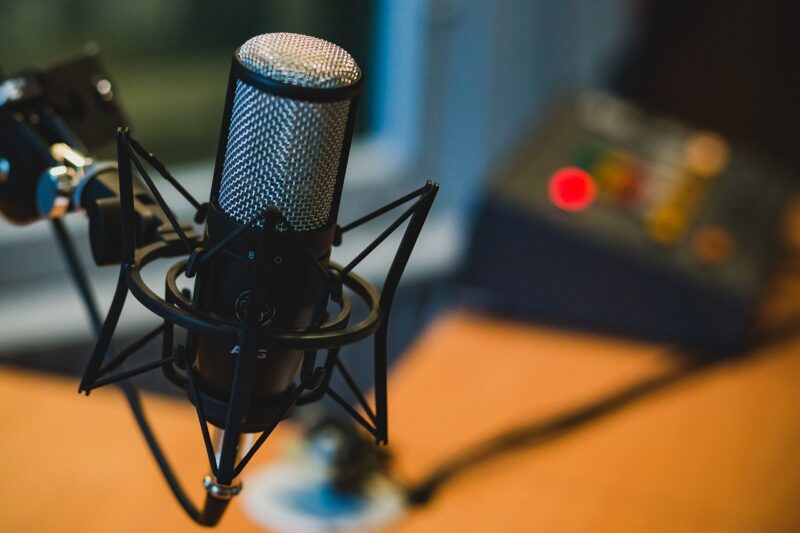
In the digital era, the podcasting revolution has transformed how we consume audio content, bringing a resurgence of interest in the art of storytelling and discussion reminiscent of radio broadcasting’s golden age. With on-demand access and an impressive variety of topics, podcasts have sparked a new wave of creativity, engagement, and connection among listeners and creators alike.
The Historical Context: Radio Broadcasting’s Legacy
Radio broadcasting has long dominated the media landscape, especially throughout the 20th century when it served not just as a source of news but also as a platform for entertainment, music, and cultural exchange. Iconic radio personalities and programs shaped public opinion and brought communities together. Shows like “The Shadow” and “Fibber McGee and Molly” captivated audiences, creating a unique connection between broadcaster and listener that transcended physical boundaries.
However, as television rose to prominence and then later, the internet, radio faced significant challenges, with many stations struggling to adapt to the evolving media ecosystem. This led to a marked decline in traditional radio listenership and interest, prompting questions about the future of the medium.
The Rise of Podcasts: A New Era of Listening
Podcasts, which first emerged in the early 2000s, are audio programs accessible online, allowing listeners to tune in at their convenience. The format’s significant growth burgeoned during the 2010s, with millions of podcasts available on platforms like Apple Podcasts, Spotify, and countless independent websites. Here’s why podcasts have become a cultural phenomenon that is breathing new life into traditional radio broadcasting:
- Accessibility and Convenience: Podcasts are available to listeners 24/7, which means people can listen while commuting, exercising, or doing household chores. This flexibility caters to our fast-paced lifestyles, making audio content more desirable than ever, unlike scheduled radio shows.
- Diversity of Content: From true crime to personal finance, interviews to storytelling, the range of topics available in podcasting caters to niche interests that mainstream radio might ignore. This diversity allows for greater exploration of ideas and communities, offering something for everyone, regardless of their interests or backgrounds.
- Intimacy and Personal Connection: The format of podcasting often encourages a more personal connection between the host and the audience. Hosts can craft narratives in a way that makes listeners feel involved in conversations as though they are sharing a moment with a friend, reminiscent of the heyday of radio broadcasting when listeners tuned in for the voices they grew to trust and enjoy.
- Creative Freedom: Podcasting offers creators an independent platform where they can express their creativity without the constraints of advertising pressures or corporate sponsors that traditional radio faces. This freedom has led to innovative formats and approaches to storytelling, pushing boundaries and producing some compelling content.
Reviving the Spirit of Storytelling
One of the most significant ways podcasts have revitalized radio’s spirit is through storytelling. Many podcasts adopt formats reminiscent of old radio dramas, weaving engaging narratives that captivate listeners. Podcasts such as “Welcome to Night Vale” and “The Moth” draw upon the tradition of storytelling in a captivating and entertaining way. These shows often include immersive sound design and original music, enhancing the experience and drawing listeners deeper into the narrative.
Moreover, podcasts have pioneered true-crime narratives, investigative journalism, and personal memoirs with emotional depth that was once the hallmark of classic radio storytelling. The resurgence of long-form conversation, exemplified by the likes of Joe Rogan or Marc Maron’s “WTF,” harkens back to talk radio’s formative years while providing fresh perspectives and new angles on familiar topics.
The Impact on Traditional Radio: Collaboration and Hybrid Models
As podcasting continues to grow, traditional radio stations have begun to adapt rather than compete, embracing the podcast format. Many stations are launching their own podcasts, reusing or adapting popular radio content for on-demand audiences. This hybrid model allows for interaction between radio and podcasting, fostering a symbiotic relationship where one fuels the other.
Furthermore, radio shows that fail to resonate with audiences are often turned into podcasts, enabling creators to maintain their connection to listeners, regardless of their radio airtime quality. This dynamic approach has breathed life back into radio, emphasizing the importance of adaptability in the ever-changing landscape of content consumption.
Podcasting and the Future of Audio Media
The podcasting phenomenon is reshaping the audio media landscape in ways that continue to evolve. Platforms are investing heavily in original content, and the phenomena of podcasting seem tangible as they draw millions into their auditory experiences. As advertising dollars shift from traditional media to podcasting, the revenue potential for creators and advertisers alike is expanding.
Moreover, podcasting is putting the power back in the hands of listeners, allowing them to curate their audio experiences. This empowerment reflects a broader trend towards personalization in media consumption, which may include a free-flowing exchange of cultural ideas, values, and experiences, creating a mosaic of voices across the digital soundwaves.
Conclusion: A New Renaissance of Radio
In conclusion, the rapid growth and popularity of podcasts have revitalized the spirit of radio broadcasting, breathing new life into a once-stagnant medium. By offering accessibility, diversity, intimacy, and creative freedom, podcasts are not merely replacements for radio; they are reminders of and homage to the community-driven storytelling inherent in the radio experience. This new renaissance has ensured that the art of audio content continues to thrive in the digital age. As long as people crave stories, connection, and conversation, the democratic nature of podcasting will continue to cultivate an enduring enthusiasm for audio media. Whether you are an avid podcaster or simply enjoy tuning in, the evolution of radio broadcasting through podcasts is a testament to the power of communication and storytelling in its most human form.







